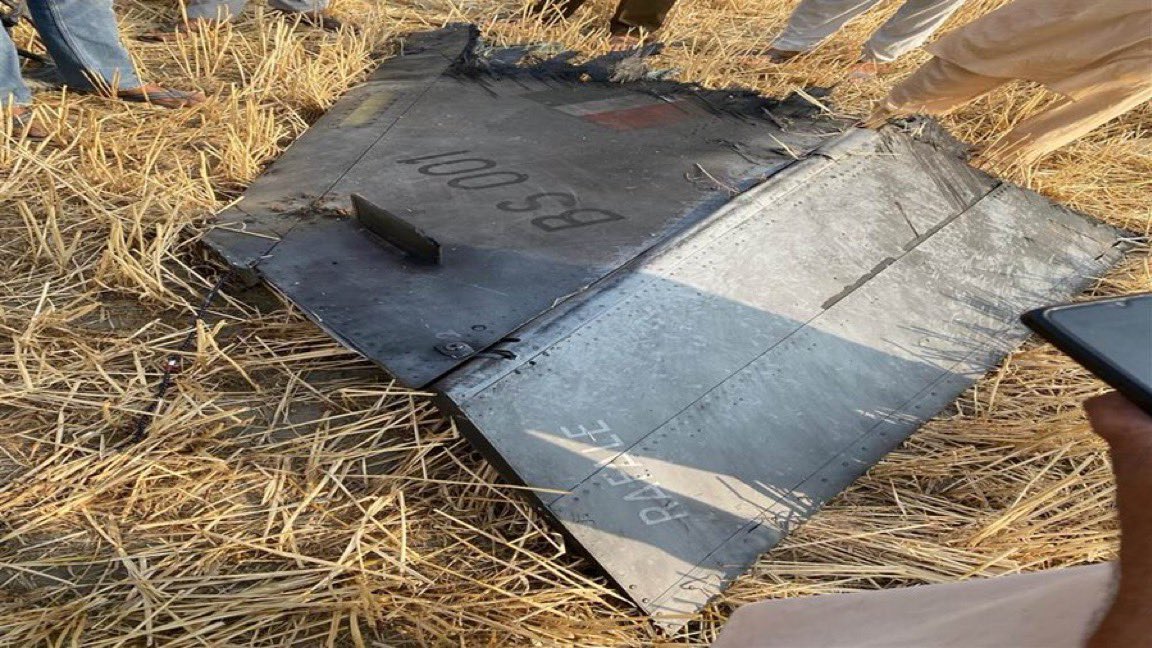New Delhi and Islamabad exchange missile and drone strikes, testing Western and Chinese weapons
As clashes between India and Pakistan intensify after the attack in Pahalgam on 22 April, military operations are increasingly seen as testing the most advanced weapons on the market. Today India struck Pakistani air defences, risking further escalation. Pakistan has promised a response “at a time and place of its own choosing” with the risk of causing the worse confrontation between the two countries since 1971.
New Delhi/Islamabad (AsiaNews) – Tensions between India and Pakistan that began with a terror attack in Kashmir on 22 April have not subsided; on the contrary, fighting continued today for the second consecutive day, increasingly appearing as testing of the weapons used by the military of the two countries.
India seemingly has given up on de-escalation after it struck Pakistan's air defence systems, among other targets. Several observers in the region, who at first expected a moderate response from Pakistan only to "save face" in the face of the Indian attack, now fear a further violent escalation.
On the wee hours of Tuesday night, 7 May, India fired several missiles against what it called terrorist training camps, while this morning it sent dozens of Israeli-made Harop drones against Pakistan’s main cities, which Islamabad said it shot down.
For New Delhi, this is a response to the launch of missiles (all intercepted) against several sites in India that took place last night.
In India, after an initial moment of jubilation for avenging the attack in Kashmir, the security services began to be alarmed yesterday after the news, carried by CNN, that at least one French Rafale jet was shot down by Pakistan, most likely thanks to Chinese weapons.
It now seems clear that, although tensions between the two South Asian countries over Kashmir are cyclical, it is the international context that has changed favouring what for many analysts is already the worst escalation since 1971, when New Delhi and Islamabad faced off in their last open confrontation.
According to CNN, without considering this morning's operations, which continued along the border dividing Kashmir, a total of 125 combat aircraft were involved on 7 May alone. No aircraft crossed the airspace of the other side but five Indian Air Force fighters were reportedly shot down.
Although the news has not been confirmed (statements from New Delhi and Islamabad differ, while the Indian press that published the news of the downing of some jets later removed it), it is nonetheless a major development.
India, which was heavily dependent in the past on Russian weapons, has reduced imports to 36 per cent, relying more on Western partners, in particular France (33 per cent), Israel (13 per cent) and the United States (10 per cent).
Conversely, Pakistan relies for more than 80 per cent of its arsenal on imports from China, but also enjoys the support of Turkey, as some Indian newspapers have reported.
Several analysts now believe that today's actions by India are an attempt to test its weapons against Pakistan’s.
In a meeting with all representatives of Indian political parties this morning, Defence Minister Rajnath Singh said that Operation Sindoor was a success and that the missile strikes killed about 100 terrorists.
This could have been enough for India to declare victory; instead, New Delhi, perhaps also to avoid the humiliation resulting from the news of the downed fighters, decided to expand military objectives.
Experts have drawn several parallels with Israeli military doctrine under Prime Minister Benyamin Netanyahu in the Gaza Strip.
Already after the terror attack in Pahalgam, Kashmir (the worst in recent decades in terms of deaths, 26), several Indian netizens had drawn a parallel with the attacks of 7 October 2023 perpetrated by Hamas against Israel.
From the outset, India claimed that Pakistan was behind the group that claimed responsibility for the attack, Lashkar-e-Taiba, which carried out several terrorist attacks in India from the 1980s to the early 2000s.
However, although Islamabad has in the past supported various terrorist groups, it has stated that it had nothing to do with the 22 April attack in Kashmir. In fact, Pakistan is at present the main victim of local terrorist groups, led primarily by the Pakistani Taliban (The Tehreek-e-Taliban Pakistan or TTP).
On its channels, the group released a statement of condolences for the death of Masood Azhar (radical Islamist, leader and founder of Jaish-e-Mohammed, another terrorist group active in Kashmir), killed in Indian airstrikes against the city of Bahawalpur.
Some observers pointed out that nowhere in the statement is there a word condemning or criticising India's military action against Pakistan.
Now all eyes are on what Islamabad's response to the Indian attacks will be.
Pakistan's National Security Council, chaired by Prime Minister Shehbaz Sharif, has authorised the military to respond at a time and place of its own choosing, adding that the population expects strong and decisive action against India.
For the time being, de-escalation efforts will have a chance only after the Pakistani response, which could be limited to a series of missile strikes against military targets along the border area.
04/03/2019 19:01
21/04/2022 14:06







.png)










